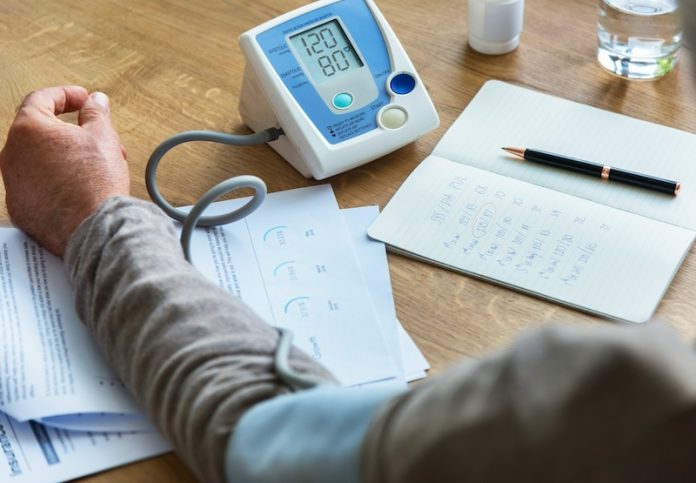
A recent study from the University of Miami has revealed something surprising: your blood pressure could have a big impact on your brain health, especially as you get older.
This includes memory, balance, and even your risk of having a stroke.
Blood pressure is like the pressure of water flowing through a hose, and it’s measured in two numbers. The first number, called systolic blood pressure, is the pressure when your heart pumps blood out.
The second number, called diastolic blood pressure, is the pressure when your heart rests between beats. Doctors get concerned when the diastolic number is 80 or higher because that could mean your blood pressure is too high.
The scientists wanted to focus on something called white matter lesions in the brain. These are like small scars that can form when something isn’t working right in the brain. These scars can interfere with how the brain sends messages, making it harder to think clearly, move smoothly, or even stay balanced.
To learn more, the researchers studied over 1,200 people aged 50 and older. They discovered that people with lower diastolic blood pressure (below 80) had fewer white matter scars in their brains compared to those with higher diastolic blood pressure (above 90).
This finding was unexpected. Until now, most people thought that only the first blood pressure number (systolic pressure) was the main concern for brain health. But this study shows that the second number also plays an important role.
Interestingly, not all parts of the brain were affected in the same way. Some areas had fewer scars in people with lower diastolic blood pressure, showing that keeping this number in check might help protect certain brain regions.
Why are these brain scars a problem? Think of the brain as a super-busy highway system, with messages zipping around to control how we think, move, and stay balanced. White matter is the part of the brain that carries these messages. If scars form, it’s like having potholes on the highway—they slow things down and can even block messages entirely.
As we age, white matter scars become more common. By age 60, about 20% of people will have them, and the number increases as we get older. These scars can lead to serious problems, like falling, difficulty thinking, or even strokes.
The good news is that this study suggests we can take steps to protect our brains. By keeping our diastolic blood pressure in a healthy range, we might be able to prevent or reduce these brain scars.
Led by Michelle R. Caunca, the researchers emphasized that managing blood pressure isn’t just about protecting the heart—it’s also about keeping the brain healthy.
Regularly checking your blood pressure and working with your doctor to keep it under control could be a simple way to help you stay sharp, steady, and healthy as you age. It’s another reason to take care of your body and mind, so you can enjoy a long life filled with good memories and fewer worries about falls or strokes.
If you care about stroke, please read studies that diets high in flavonoids could help reduce stroke risk, and MIND diet could slow down cognitive decline after stroke.
For more health information, please see recent studies about antioxidants that could help reduce the risk of dementia, and tea and coffee may help lower your risk of stroke, dementia.
Copyright © 2025 Knowridge Science Report. All rights reserved.



